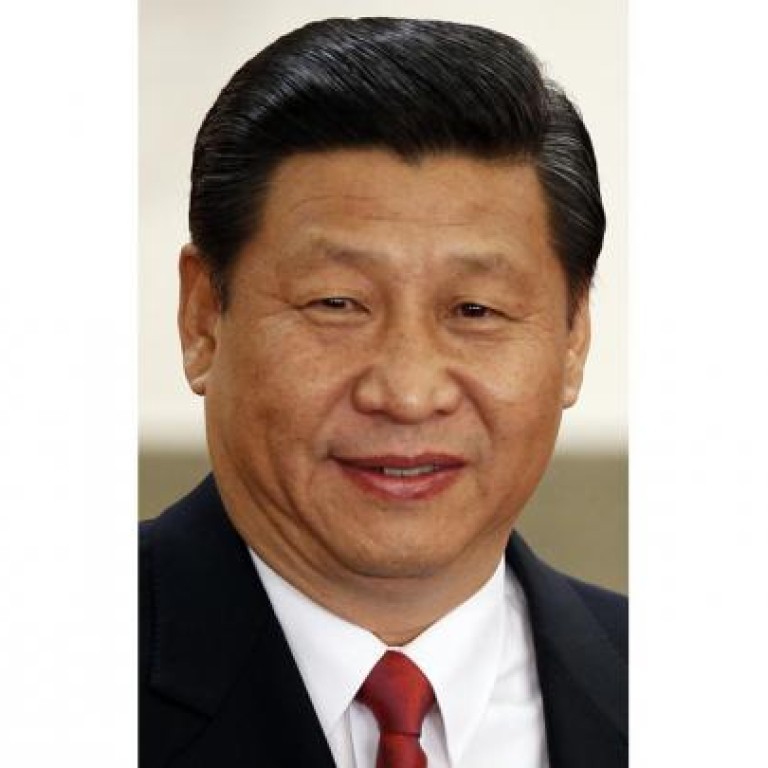
Chinese diplomacy in holding pattern before Xi takes over
Interactions with Japan and US in Asia-Pacific is likely to be fraught with uncertainty for now
China's interactions with the two other major powers in the Asia-Pacific region, the United States and Japan, are expected to be fraught with uncertainty over the next few months because of impending government reshuffles, analysts say.
China has just seen Xi Jinping named Communist Party chief and he is poised to succeed Hu Jintao as president in March.
US President Barack Obama won re-election this month and is looking to fill key cabinet posts.
Japanese Prime Minister Yoshihiko Noda dissolved the lower house of parliament last week, paving the way for an election next month that his party is likely to lose, which would allow for the return to power of the long-dominant Liberal Democratic Party, under conservative former prime minister Shinzo Abe.
Top diplomats from China and the US have yet to be decided, including the successor to US Secretary of State Hillary Rodham Clinton and the American officials responsible for the Asia-Pacific region.
While China's top leadership line-up has been finalised, it is not known who will succeed State Councillor Dai Bingguo , the top diplomat, or Foreign Minister Yang Jiechi .
Dai, 71, and Yang, 62, both career diplomats, are set to retire in March. There is speculation that Deputy Foreign Minister Zhang Zhijun will replace Yang, and Dai may be replaced by Wang Huning, who was just named a Politburo member last week, or Ji Bingxuan, the party chief in Heilongjiang .
There have been calls to raise the profiles of the nation's foreign affairs players. That would enable them to better co-ordinate with other agencies. Under Dai and Yang, such work had been poor, particularly with the military.
Professor Shi Yinhong, an international relations expert at Renmin University, said that with the current administration due to step down in March, "government leaders would comment less on the country's diplomatic affairs".
"The current leaders cannot make many long-term plans on behalf of the next administration," he said.
Jin Canrong, a US affairs expert at the university, said both countries would only try to stop bilateral disputes from escalating, largely staying quiet.
With Obama re-elected, analysts expect Washington to continue with its existing China policies. In China, Xi's approach is not expected to deviate much from his predecessors, even though he is likely to appear more assertive. Analysts say the situation facing Sino-Japanese ties is trickier.
Yang Xiyu, a senior research fellow at the China Institute of International Studies, said Sino-Japanese ties would enter an "empty" period. "Both China and Japan will not make any major diplomatic moves affecting bilateral ties until after the Japanese election," he said.
Polls by Japanese media suggest the Liberal Democrats may win the election, but face the prospect of having to form a coalition government with other political parties, creating uncertainties for Japanese politics and Sino-Japanese ties.
Abe visited the controversial Yasukuni Shrine - which honours Japan's 2.5 million war dead, including war criminals - in Tokyo last month, adding to the strains weighing on Sino-Japanese relations, already tense after Tokyo's purchase of disputed islands in the East China Sea. The islands are known as the Diaoyus in China and the Senkakus in Japan.
"No matter whether the Liberal Democratic Party will win the election, Japan is moving towards the right and that has triggered a radical response in China among politicians across the political spectrum," said Chen Xiaodong, vice-president of Shanghai Institute of International Studies.
Chen said Abe may adopt a more practical mindset, and attempt to stop ties with China from deteriorating further, but Beijing would still have concerns on Japan's political landscape.
In September, Xi told visiting US Defence Secretary Leon Panetta that Japan's purchase of the Diaoyu Islands was farcical.
Analysts expect the Chinese administration under Xi to not depart significantly from the diplomatic stance of his predecessors. That means it would stress China sticking to a peaceful development path.
However, they said Xi would act with confidence and not refrain from being assertive, especially regarding sovereignty issues. "Xi will be resolute in defending China's sovereignty," Chen said. "He will stress that China's development will be peaceful, but also convey a message that China will not be weak."

